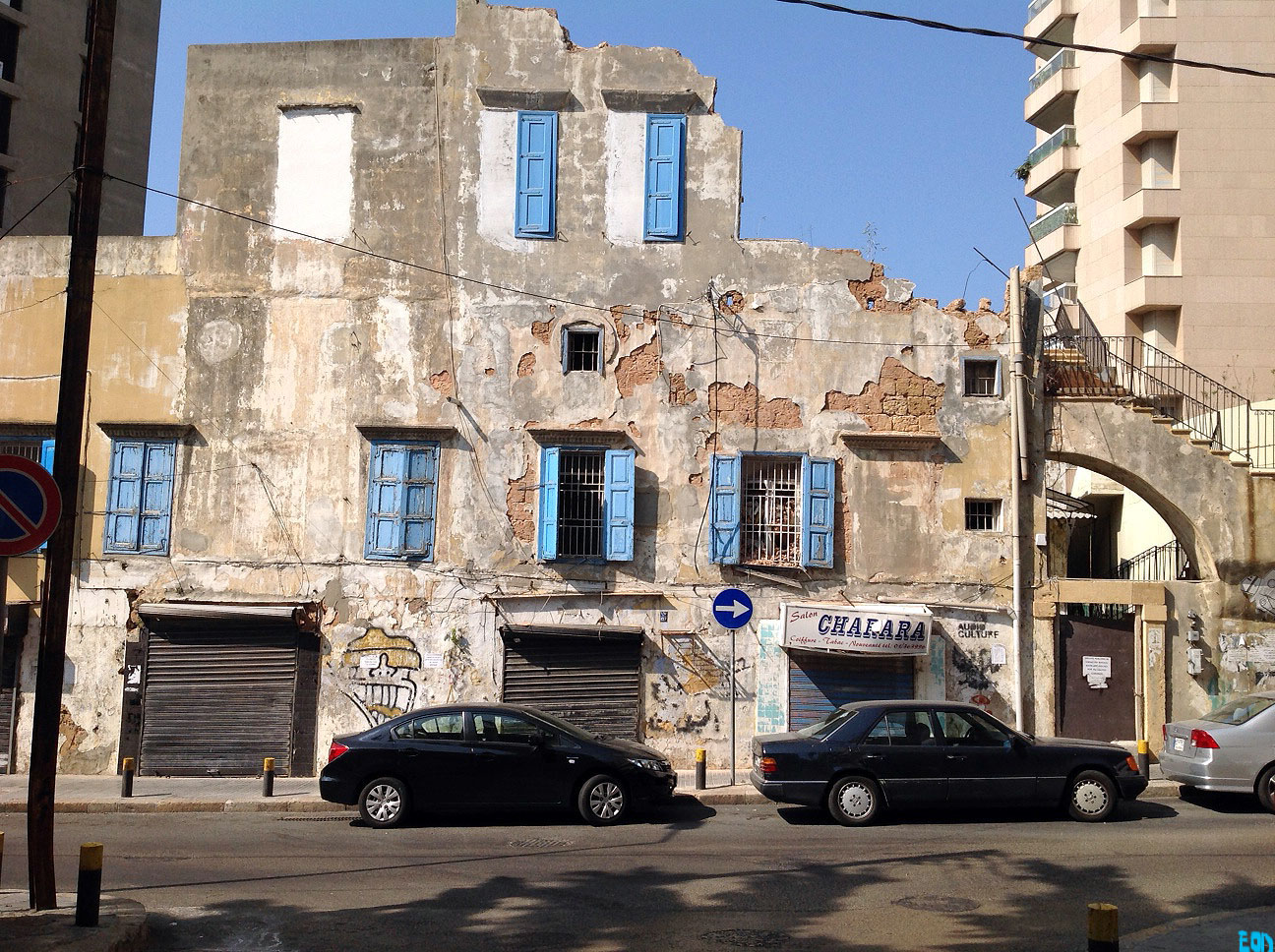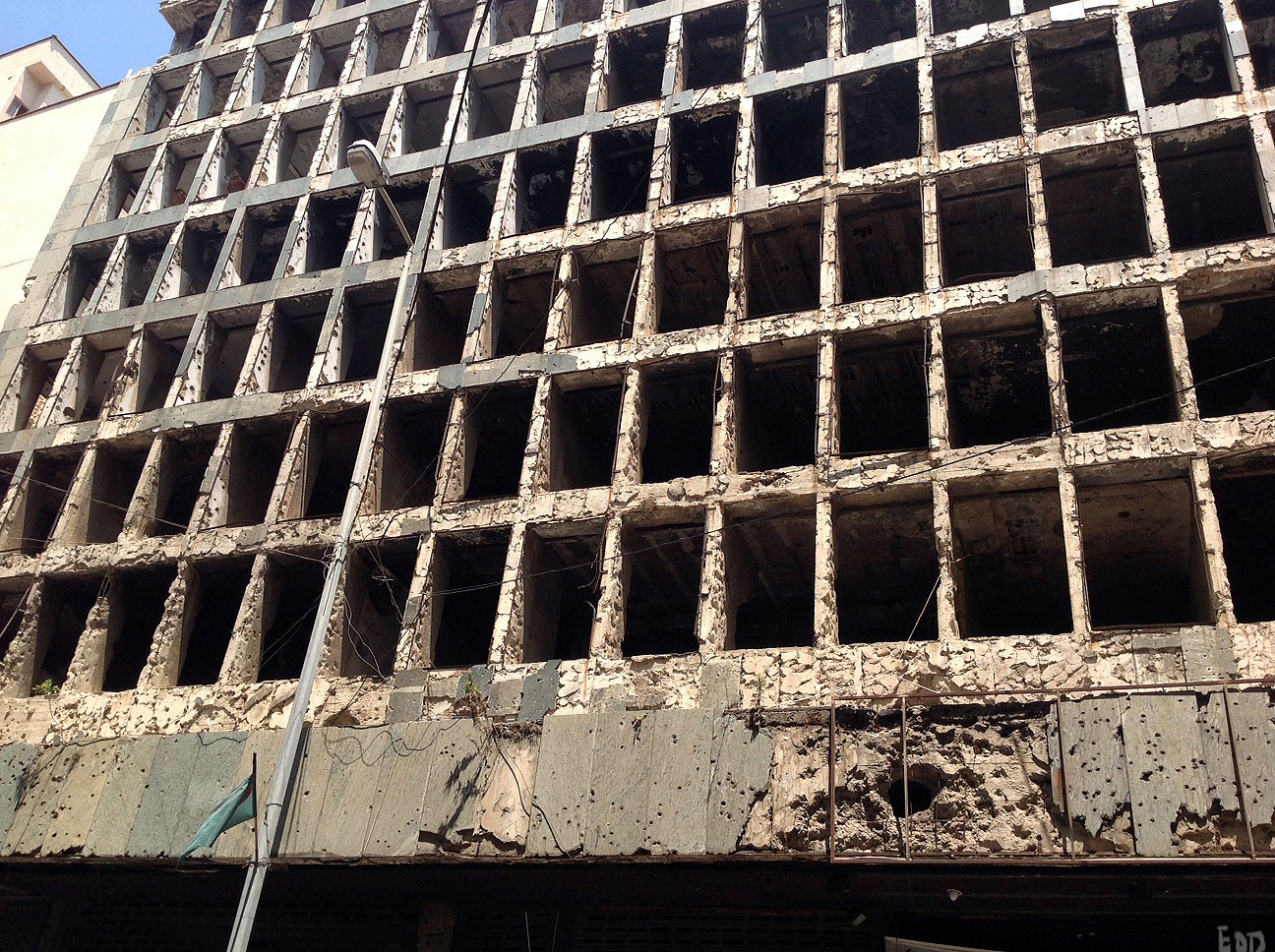I abhor war and view it as the greatest scourge of mankind. — Thomas Jefferson
Four mattresses–I can’t get them out of my head. Four yellow, ratty mattresses–far away from their bed. Four wheels, for four mattresses–is better, I guess, than being dead…
Last month, when I took my family to Baalbek–despite bombs falling from Syria near the ruins that week–our trip was much different than when I took students there on a field-trip a few months before–all because of those four fraying mattresses.
On the Iranian-funded road back from Baalbek to Beirut, it wasn’t the fifty men with machine guns at a checkpoint that made my family and I concerned. No, our worry was triggered by those four old mattresses–strapped onto the roof of a car of Syrian refugees–fleeing their home, and passing us on the road. In the backseat, the children held large boxes on their laps–and it was a miracle that they could breathe under the weight of all their household goods crammed into every inch of that tiny car.
Before those four mattresses, my family and I had been celebrating our successful trip–and planning our next big adventure. But when those four mattresses passed us on the road, our smiles were replaced by slow rolling tears. Though our journeys shared the same road, that busy highway was split into two–two different and distant realities. We were coming back from a beautiful–though harrowing–day of sight-seeing, and they were leaving their old lives behind in the midst of a civil war. It was only natural to imagine if they were wondering whether or not they would ever make it home again…
Four thin, stained mattresses–stacked on a rusted roof with rope. Though I’ve spent plenty of time with refugees, sharing yoga, acupuncture, and Ramadan iftars, seeing refugees in the midst of their flight–in the liminal lane between a past life and an undefined future–is different than watching a two-minute story about it on the news. Through their window, we could see what toys the children were clutching in their hands. Witnessing the shock frozen on each forward-looking face, it was easy to conclude that any war is a disgrace. Though our collective impulse was to say something–or physically reach out–the wind on the highway was whipping the mist of our tears out of the window–instead of our words…
Go, rest your head on a pillow, leave me alone;
Leave me ruined, exhausted from the journey of this night…
Flee from me, away from trouble; take the path of safety, far from this danger.
We have crept into this corner of grief, turning the water wheel with a flow of tears…
— Rumi
We all face death in the end.
But on the way, be careful–
to never hurt a human heart.
— Rumi
Tonight–as I write this–I’m the one packing my bags, and getting ready to flee. I won’t be taking my mattress with me, but I’m packing up all that I can–just in case. Tonight, I’m trying to fit my entire world into a suitcase.
When I told my Lebanese friend last night that I think we’re screwed, she said: “We have always been screwed. It’s all about the various degrees of screwing we go through.”
Before this week, when ruminating about those four flying mattresses–I was viewing them from a distance, knowing that their flight was an experience I could never understand. But with bombs exploding in Beirut and others landing elsewhere in the Levant, I’m no longer seeing those four mattresses from the backseat of a taxi–instead, I’m closer to contemplating them from under the weary roof struggling to hold them up…
If men can develop weapons that are so terrifying as to make the thought of global war include almost a sentence for suicide, you would think that man’s intelligence and his comprehension…would include also his ability to find a peaceful solution.
— Dwight D. Eisenhower

